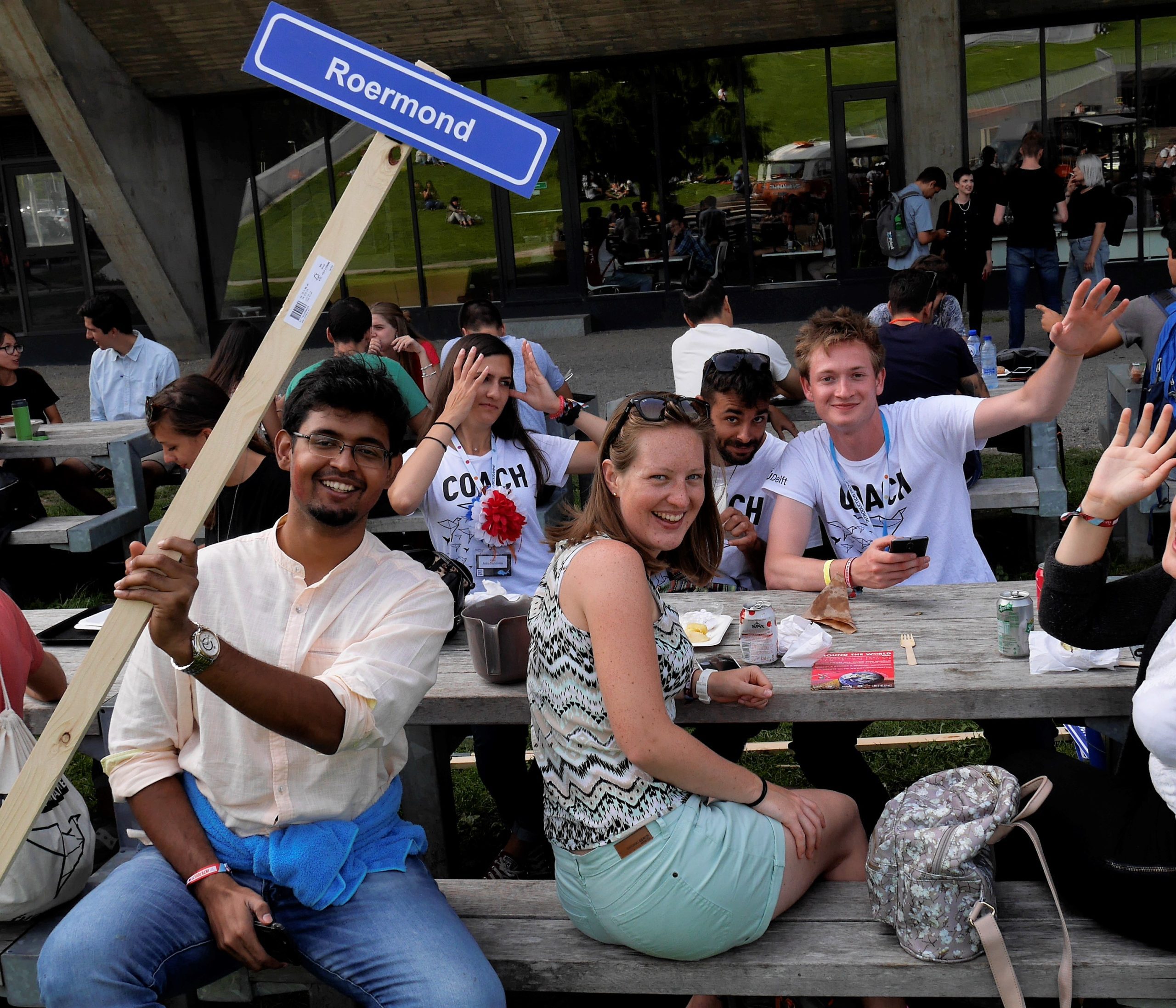Dutch should become the language of instruction at universities within three to four years, said Pieter Omtzigt. “So fewer internationals will come to the Netherlands.”
International students, here during their introduction period, gravitate towards English-language education. Omzigt wants to phase that out in three to four years. (Photo: Roos van Tongeren)
“Programmes are taught in English at almost all the universities in the country”, Omtzigt told Op1 presenters Tijs van den Brink and Sven Kockelmann when asked how he plans to reduce migration. He mentioned not just labour migration and the reception of asylum seekers, but also study-related migration.
Some programmes are almost exclusively attended by international students, said Omtzigt, who is contesting the forthcoming parliamentary elections with his ‘Nieuw Sociaal Contract’ party. “There are even universities that have more international students than Dutch students, Maastricht University being one of them.”
Van den Brink asked him what he intended to do about it. “Dutch should be the language of instruction at Dutch universities”, was his reply. International students wishing to study here would then have to learn Dutch.
More radical
This is a more radical position than he has defended in the House of Representatives. He previously left Master’s degree programmes aside, choosing instead to focus mainly on Bachelor’s degree programmes. These should be taught in Dutch once again, he said, “with room for a possible exception of up to 20 percent of programmes.”
So, in the lead-up to the elections, he is expanding his position, although he also concedes that universities could continue teaching in English “on an occasional basis.” “It’s not a forbidden language. But the standard language of instruction should be your own national language. Also, bear in mind that this is of profound cultural importance. Look at Friesland, for example. When you stop using a language at university, and also in arts and culture, it becomes a regional language.”
‘The standard language of instruction should be your own national language’
If Dutch becomes the language of instruction again, fewer international students will come here to study. “That is correct”, said Omtzigt. “That means it will need to be done gradually, as some of the teachers now are native English-speakers. So I wouldn’t foresee doing that in one year. A reform of this nature could be implemented over three to four years.”
Student financing
Omtzigt is also critical of student financing being available to international students now that the basic student grant has been re-introduced. “And we pay this to all EU students”, he stated. It should be noted that this is not entirely correct, given that there are conditions attached to this form of student financing. Students from EU countries are only entitled to a basic student grant if they have lived in the Netherlands for several years or have a side job for a certain number of hours.
Omtzigt also wants to curb labour migration. He believes it is unfair that foreign employees should pay less tax than their Dutch colleagues at the next desk. Highly skilled migrants receive up to 30 percent of their salary tax-free for a period of five years. The idea is to attract these workers to the Netherlands. Omtzigt maintains that this creates problems in the housing market, among other things, as these expats can afford higher rents.
HOP, Bas Belleman
Translation: Taalcentrum-VU
Do you have a question or comment about this article?
redactie@hogeronderwijspersbureau.nl


Comments are closed.